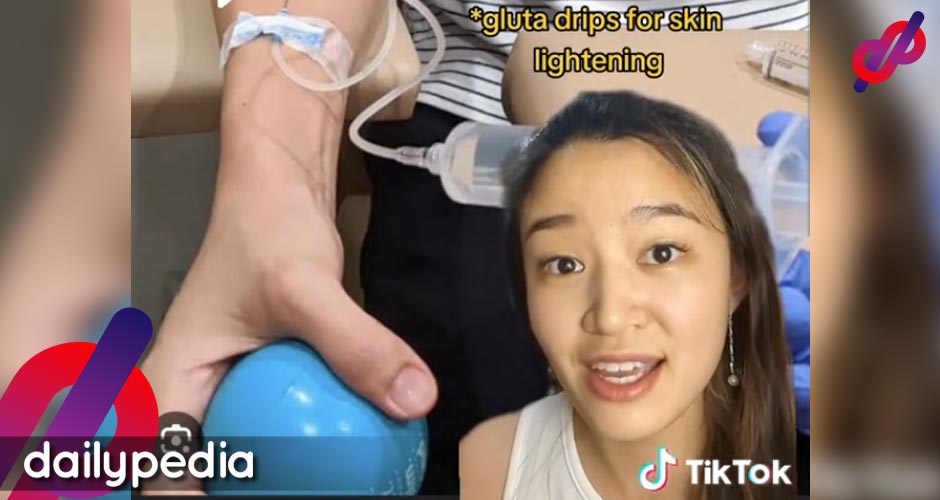A licensed chemist has warned netizens against injecting glutathione into their skin to whiten their skin.

TikTok user @sheanene informed netizens that glutathione injectables for skin whitening have yet to be approved by the Food and Drug Administration (FDA).
She said that the FDA hadn’t released guidelines for the procedure. This is despite it being a common treatment for Filipinos who want to lighten their skin tone.
https://www.tiktok.com/@sheanene/video/7240866757710253318
She explained that most people who take glutathione want lighter skin and have to overdose on it. This could have adverse effects.
Beauty clinics nationwide have been cautioned by the FDA regarding glutathione injectables, a popular method of skin lightening.
“It is alarming that they (clinics, spas, and salons) also offer services such as intravenous drip or infusion using skin lightening agents including reduced glutathione, vitamin C, and other injections,” the FDA said in an advisory.
In the Philippines, there is a notable trend in popular “drip” treatments for skin whitening. These treatments involve the intravenous administration of mixtures containing substances such as glutathione, vitamin C, and collagen, to lighten one’s complexion.
While clinics claim that these treatments are harmless and even beneficial for health, the FDA has issued a warning stating that glutathione has not undergone evaluation as a skin-lightening treatment in published clinical trials.
The FDA further emphasizes that no injectable products have been approved specifically for skin lightening, as injectable glutathione is only approved as an additional treatment for cisplatin chemotherapy.
Using injectable glutathione for skin lightening carries potential side effects, including toxicity to the liver, kidneys, and nervous system.
There is also a risk of developing Stevens-Johnson Syndrome, a severe skin disorder triggered by medication reactions that result in skin shedding. Additionally, since whitening drips often contain vitamin C, the FDA cautions that they can contribute to kidney stones.
Furthermore, there are more serious risks associated with these treatments, such as an increased likelihood of developing skin cancer and the potential transmission of HIV, Hepatitis C, and Hepatitis B, particularly when the intravenous procedure is performed by non-medical personnel or in non-sterile environments.
In addition to clinics offering these treatments, glutathione drips are readily available for purchase online, with some sellers even providing at-home services.
Like many other parts of Asia, the Philippines places a high value on light skin.
While whitening products like soaps and lotions are commonly found in supermarkets, more intense whitening procedures like glutathione IV treatments have gained popularity in recent years.


